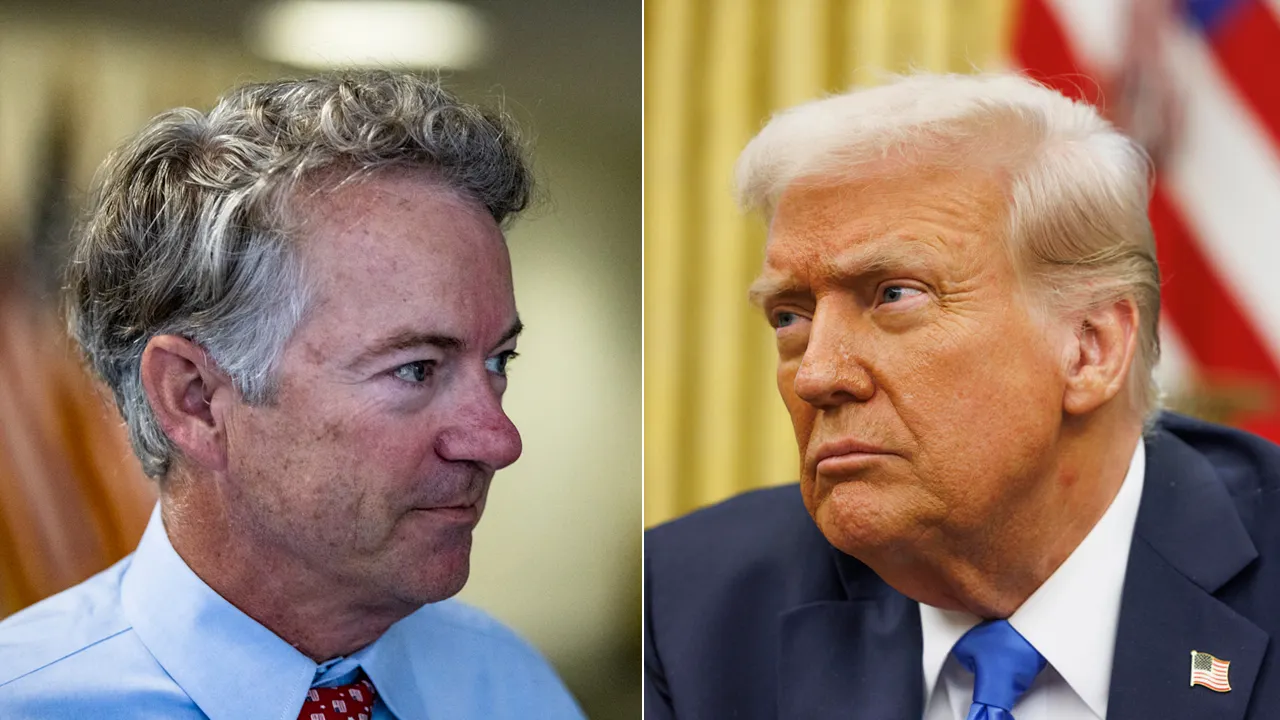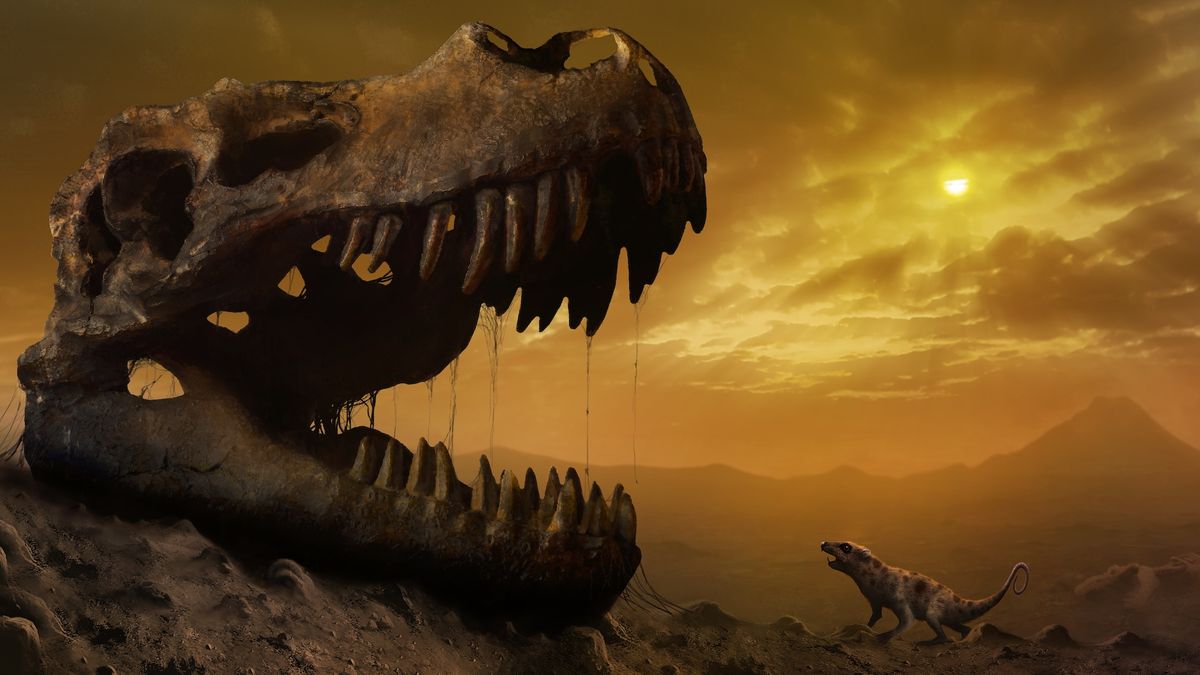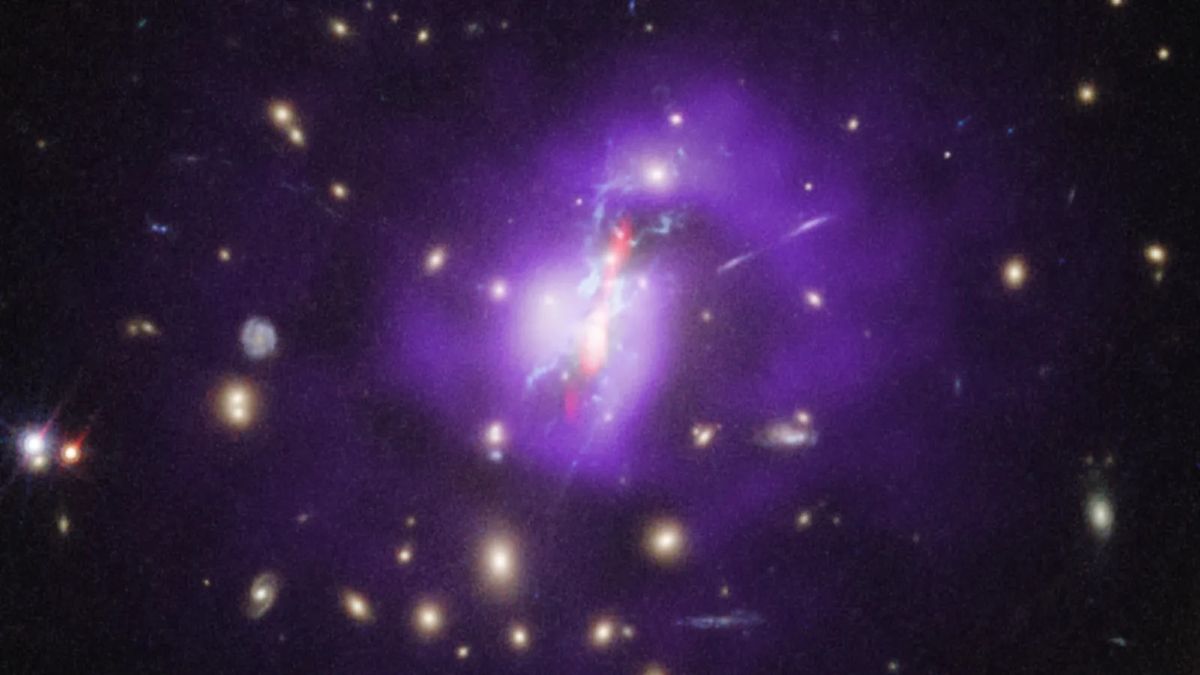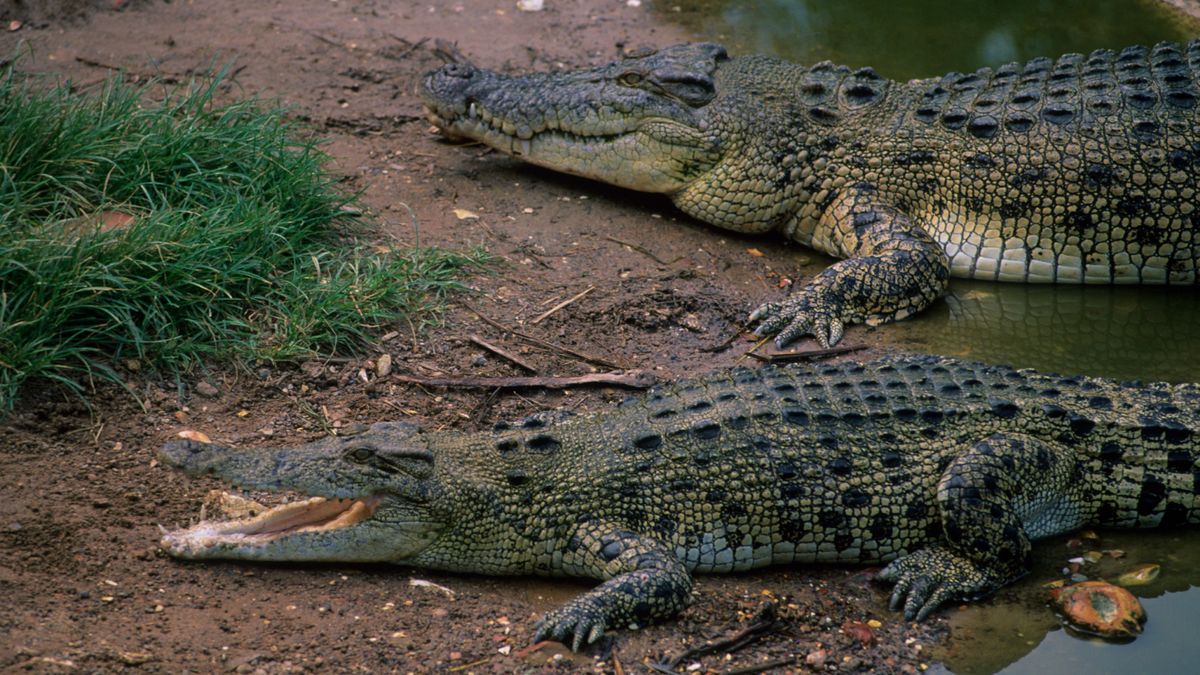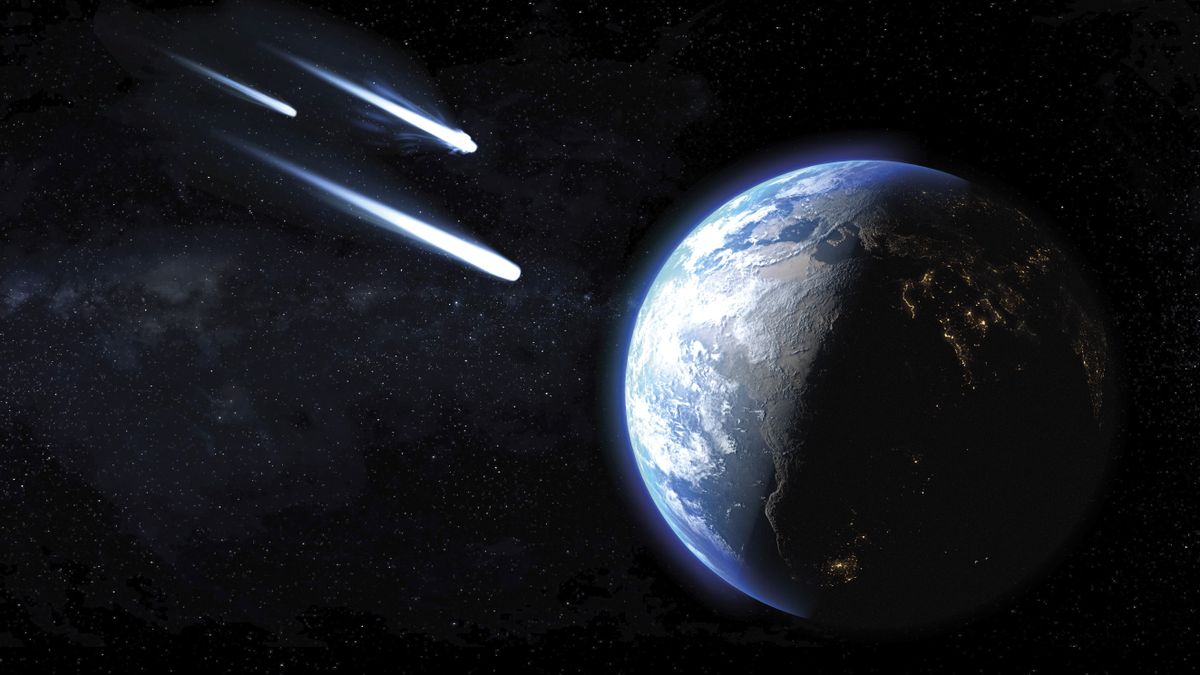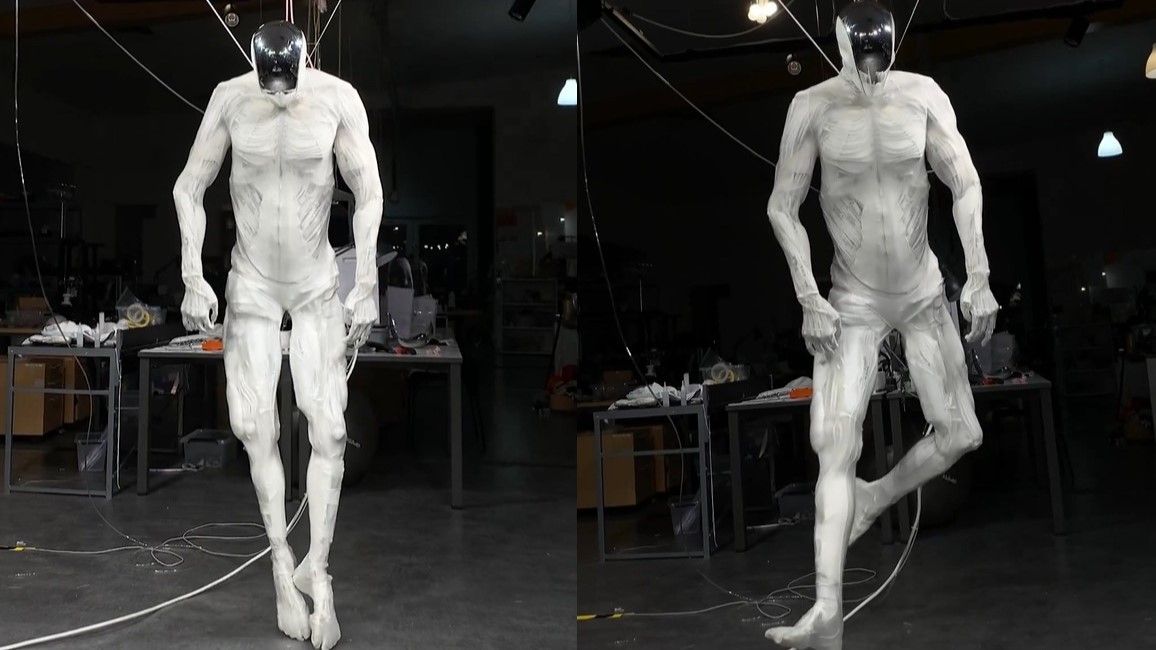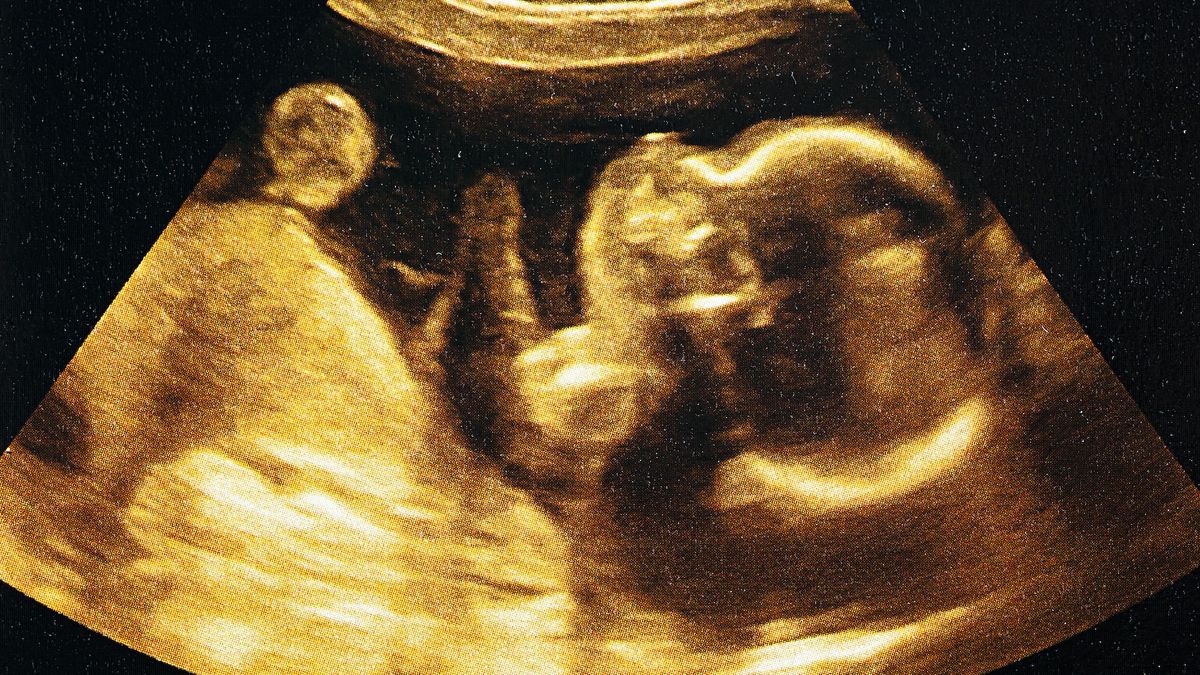One fateful day 66 million years ago, the dinosaurs — which had inhabited Earth for about 165 million years — got a nasty surprise: A roughly 9-mile-wide (15 kilometers) asteroid crashed into what is now Mexico, triggering tsunamis, wildfires and acid rain and causing vast amounts of debris to block out the sun. As a result, 75% of species on Earth, including the nonavian dinosaurs, died off within months of the impact.
But what if the asteroid had never struck Earth? Would the dinosaurs have continued their reign over the planet? Could they have survived ice ages and evolved to become more intelligent?
According to paleontologists, it’s possible that dinosaurs would have continued to evolve and rule Earth. After all, they’d already survived and adapted for 165 million years, which included surviving rising and falling seas, temperature spikes and volcanic eruptions, according to Steve Brusatte, a professor of paleontology at the University of Edinburgh. But this would have made it impossible for our mammal ancestors to evolve the way they did.
Some scientists think dinosaurs would have met their doom anyway because extinctions appear to have outpaced the emergence of new dinosaur species. But Brusatte isn’t convinced.
“For those of us who collect fossils of the last dinosaurs, we can see quite clearly that everywhere in the world … there [was] a great diversity and abundance of dinosaurs,” Brusatte told Live Science in an email. “It seems remarkably clear to me that dinosaurs were strong, successful, still diverse, [and] still at the top of their game when the asteroid hit.”
Related: What happened when the dinosaur-killing asteroid slammed into Earth?
Dinosaurs in an ice age?
But could dinosaurs have lived in frigid conditions, such as ice ages? With the exception of some dinosaurs that lived in snowy climates, the majority didn’t. According to Brusatte, some dinosaurs may have fared well under new extreme conditions.
“Many of them had feathers, [so] they could insulate themselves just like mammals can,” Brusatte said. In addition, some dinosaurs, such as Tyrannosaurus rex, were likely warm blooded, research finds, meaning they weren’t completely at the mercy of a changing climate.
It’s also possible that dinosaurs would have evolved new defenses against the cold during extreme weather. Take mammoths, for example, which evolved around 5 million years ago in South Africa. About 800,000 years ago, during the last ice age, some mammoths grew woolly coats as they expanded to the much colder region of Eurasia.
Would dinosaurs have evolved to be more intelligent?
Given enough time, could dinosaurs have evolved into more intelligent creatures? In a 1982 thought experiment, American-Canadian paleontologist Dale Russell wondered whether troodontid dinosaurs could have evolved sentience had they not died in the end-Cretaceous mass extinction. He dubbed them humanoid dinosaurs, or dinosauroids. He based this idea on the fact that one species of troodontid already had a “large brain, stereoscopic vision, opposable fingers and bipedal stature,” and might have evolved to have an “encephalization quotient similar to that of Homo sapiens” if it had survived. His collaborator Ron Séguin, an artist and model maker, made a reconstruction, showing a green-skinned creature.
But over the years, paleontologists have dismissed this idea, calling it unrealistic and too anthropomorphic-looking. A 2023 study found that “neither troodon nor any other dinosaur could have begun a primate-like lineage that evolved to a human level of intelligence.”
That said, modern-day birds show that dinosaurs may have been fairly intelligent.
“The dinosaurs that live on today — birds — are really smart,” Brusatte said. “They actually have more neurons in their brains than mammals, on average. [But] could birds one day achieve human-like cognition? I don’t know.”
What would have happened to mammals?
Mammal evolution would have faced a severe setback if the asteroid had not hit. Brusatte said that if large dinosaurs had survived, the small, rodent-like mammals that already existed alongside them may not have had the same opportunity to evolve and grow larger.
“I suspect that mammals would have mostly or entirely stayed small for many millions of years more,” he said. “Although with cooling temperatures and the last Ice Age, that may have given small mammals — as warm-blooded furry creatures that could handle the cold — an opportunity to get larger, and maybe giant dinosaurs would have gone by the wayside.”
Related: Are birds reptiles?
But that doesn’t mean that humans would have emerged. “While furry little mammals may have still fared okay, human beings would still likely never have evolved, Paul Sereno, a paleontologist and professor of biology at the University of Chicago, told Live Science in an email.
“We evolved in a mammalian world impossible to have taken place with large nonavian dinosaurs running around,” Sereno said. “We are not inevitable.”
It’s the extinction of land-dwelling dinosaurs, and possibly the extinction of a competing group of mammals, that gave our primate ancestors the opportunity to thrive and evolve, a 2021 study found. If the asteroid had missed Earth, it’s likely that humans, at least as we know them, never would have existed.
“History would have been totally different,” Brusatte said. “Our exact ancestors surely would have never had their chance to evolve.”
